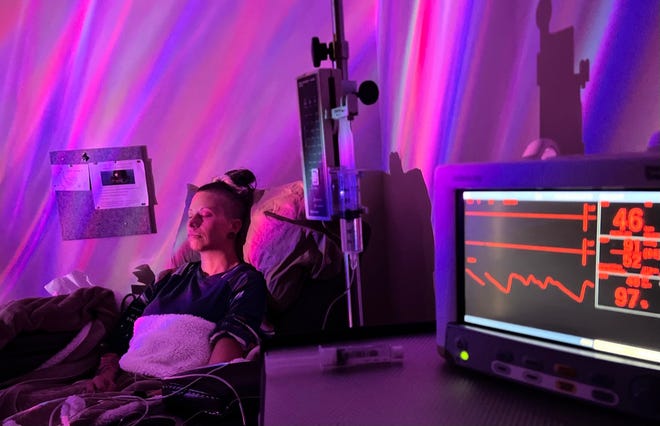Grace Butcher has lived with major depressive disorder and PTSD since she was a teenager.
Since the age of 15, she has been prescribed a variety of treatments and medications, some more effective than others. Her worst symptoms had improved by last summer, but she still felt like she wasn’t living the “healthiest life” of her life.
“I was on every antidepressant, every anti-anxiety medication. I was hospitalized three times,” she said. “I felt like I had kind of maxed out what was available to me for my mental health and kind of hit a plateau.”
Then, late last summer, Butcher started taking ketamine at a clinic in the Milwaukee area.
